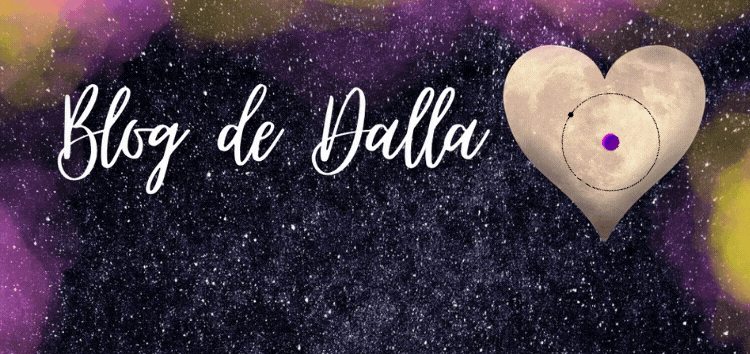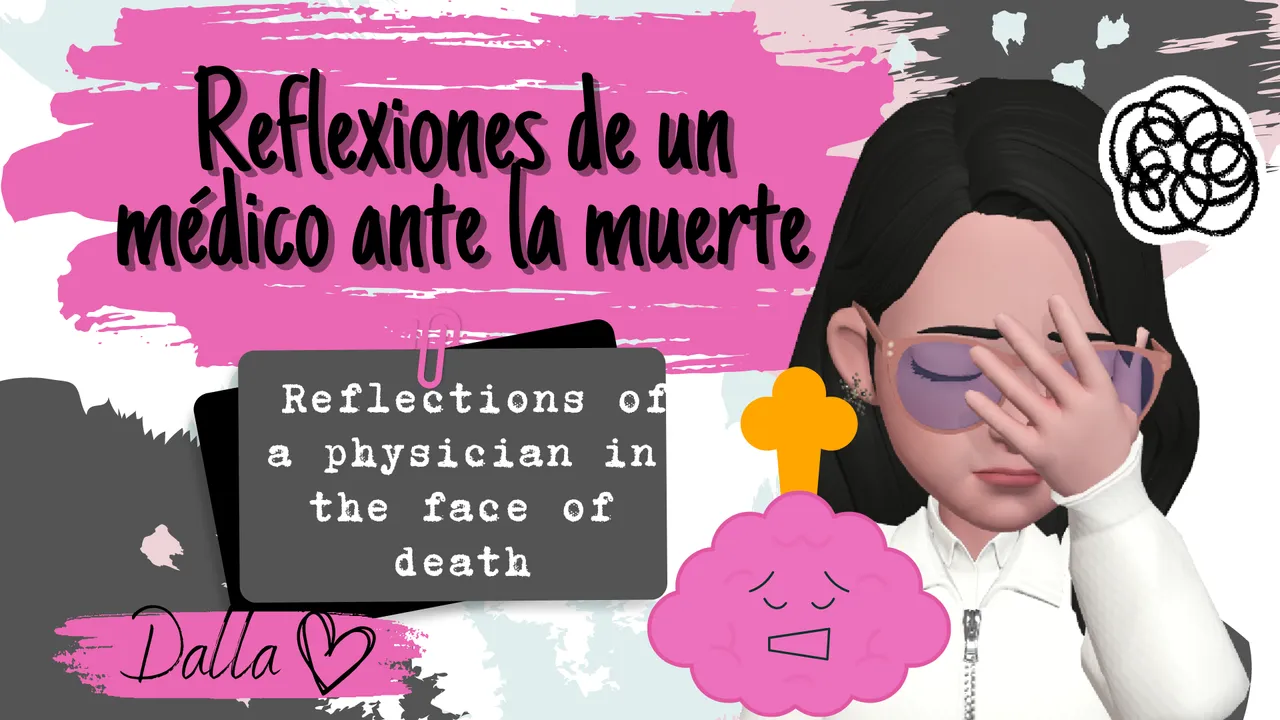
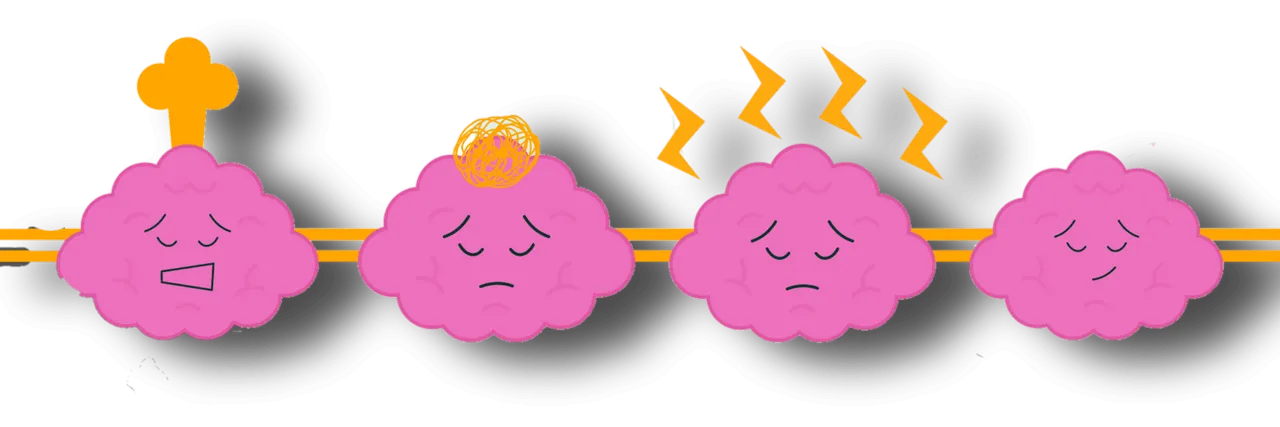
Últimamente siento que me he tenido que acostumbrar a la muerte más de lo que anteriormente lo estaba y es irónico porque, probablemente para el que escuche que mi especialidad es la geriatría, de seguro pensará que veo morir personas todo el tiempo por lo que debo estar algo acostumbrada, y no hay nada más alejado de la realidad.
Para mí la muerte es igual de impresionante que para cualquiera, venga de donde venga, bien sea alguien cercano a mi familia o un paciente, y es que jamás he podido aceptarla del todo, no hasta hace un par de meses cuando murió mi abuela paterna con más de 100 años de edad.
Creo que ese era uno de mis mayores miedos, ser la geriatra de mi abuela cuando llegara ese momento porque, de hecho, ella fue una de las personas por las cuales decidí especializarme en los adultos mayores, por eso siempre tuve miedo de no saber cómo actuar en ese momento, siempre pensaba ¿Y si mi preparación no es suficiente para ayudarla? ¿Será que sabré actuar como se debe?
Lately I feel that I have had to get used to death more than I was before and it is ironic because, probably for those who hear that my specialty is geriatrics, they will surely think that I see people die all the time so I must be somewhat used to it, and there is nothing further from the truth.
For me, death is just as impressive as it is for anyone else, wherever it comes from, whether it is someone close to my family or a patient, and I have never been able to accept it completely, not until a couple of months ago when my paternal grandmother died at the age of 100 years old.
I think that was one of my biggest fears, to be my grandmother's geriatrician when that moment came because, in fact, she was one of the people for whom I decided to specialize in the elderly, so I was always afraid of not knowing how to act at that time, I always thought: What if my preparation is not enough to help her? Will I know how to act as I should?

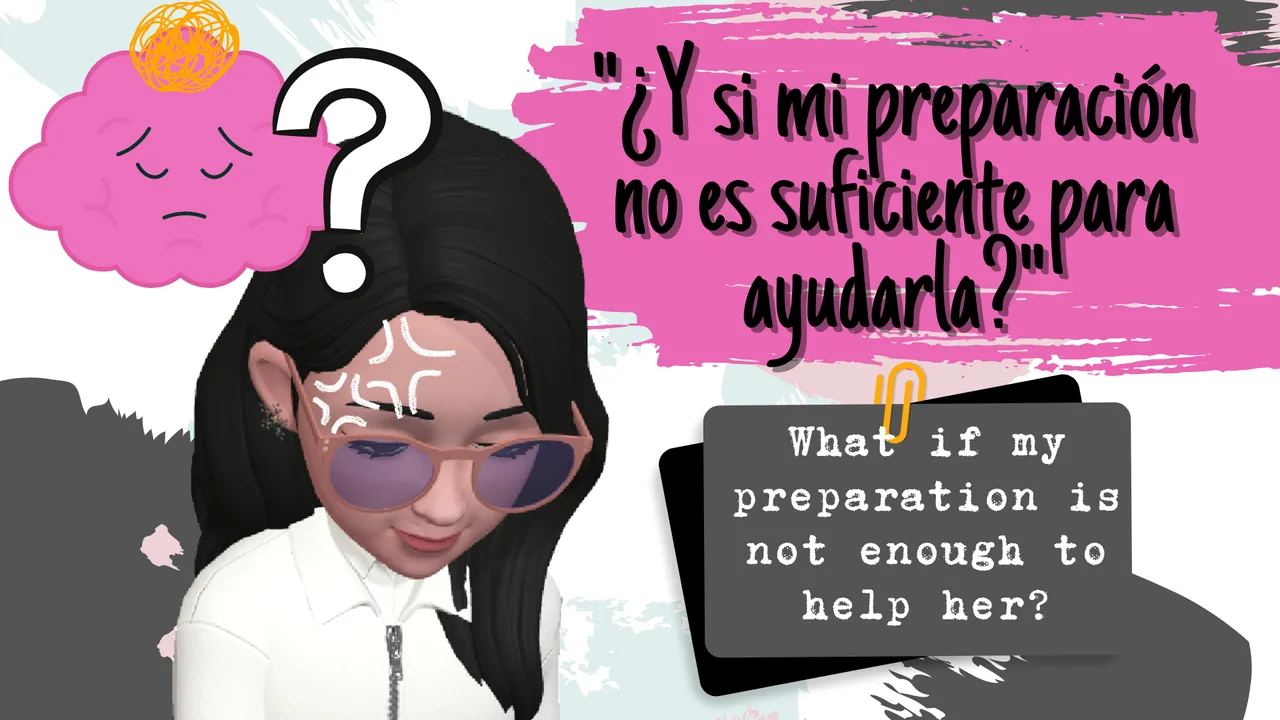

Y es que nosotros en geriatría nos debatimos siempre entre el deber y lo que podemos hacer, porque una cosa es lo que nos enseñan en la carrera de medicina, es decir, a prolongar la vida del paciente lo más que podamos, y otra es lo que de verdad sentimos que podemos nosotros hacer, es ahí cuando caemos en uno de los tantos dilemas médicos en donde muchas veces no sabemos qué hacer y otras veces sentimos que lo sabemos, pero no es el deber ser.
Hay demasiados factores que debemos analizar cuando estudiamos un paciente que "aparentemente" está en la última etapa de su vida, porque así lo indica su edad, y uno de esos factores principales, que considero hay que valorar, es el estado físico y emocional del cuidador principal.
Cuando estudiamos la carrera nos enseñan a enfocarnos en el paciente, el familiar es alguien terciario, no importan los esfuerzos que haya que hacer mientras se cumplan los objetivos con el paciente, es él nuestro centro, todas las energías y enfoques de todos deben estar sobre él.
In geriatrics we are always torn between our duty and what we can do, because one thing is what we are taught in medical school, that is, to prolong the patient's life as much as possible, and another is what we really feel we can do, and that is when we fall into one of the many medical dilemmas where many times we do not know what to do and other times we feel we know what to do, but it is not our duty to do.
There are too many factors that we must analyze when we study a patient who "apparently" is in the last stage of his life, because that is what his age indicates, and one of those main factors, which I believe must be evaluated, is the physical and emotional state of the main caregiver.
When we study the career we are taught to focus on the patient, the family member is someone tertiary, no matter the efforts that have to be made as long as the objectives are met with the patient, he is our center, all the energies and focus of all should be on him.

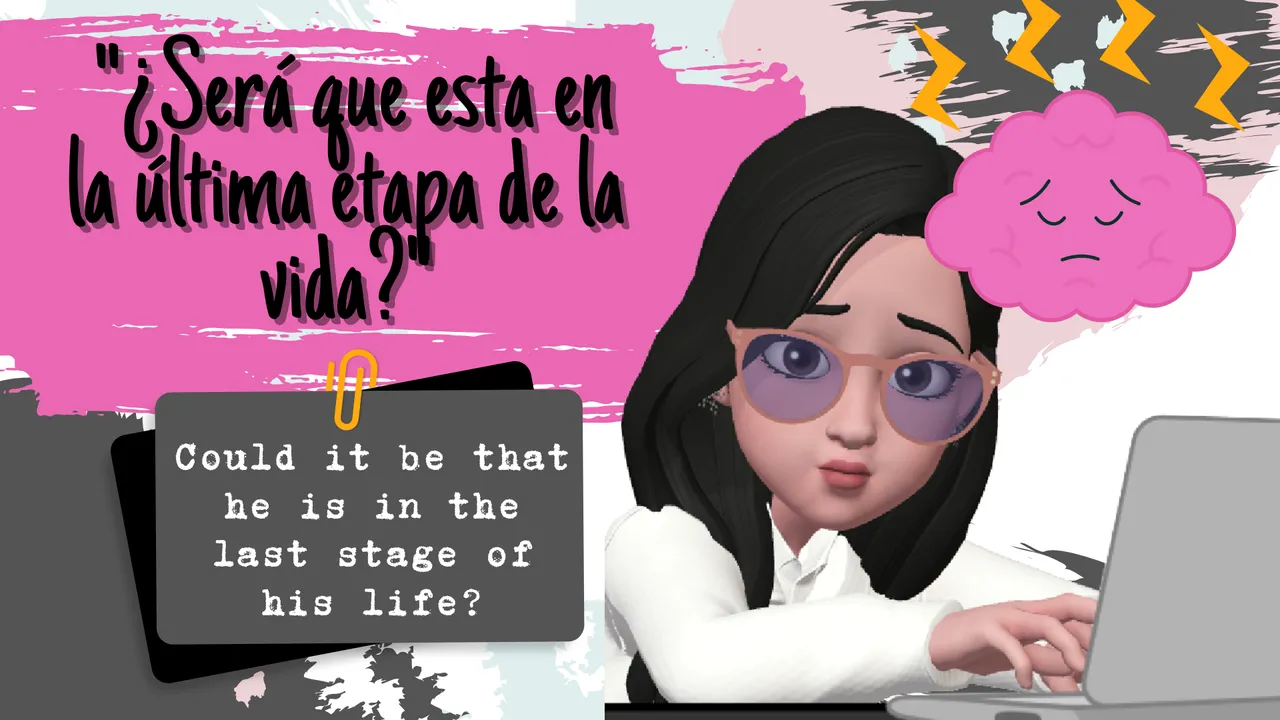

Pero, ¿Qué pasa, si ese paciente tiene casi 100 años y sus hijos, que son sus cuidadores, tienen alrededor de 70 también y están agotados física y emocionalmente?, ¿Podemos solo enfocarnos en el paciente que atendemos? Este es uno de los dilemas que se nos anexan frecuentemente a los geriatras, además de los que ya aprendimos en la carrera, porque al final del día ese cuidador también es un adulto mayor y ha vivido mucho menos que su padre o madre a quien cuida, probablemente ha tenido un largo periodo de tiempo de agotamiento y está en Síndrome de Burn Out, así que, es justo ahí, cuando se nos presentan las contradicciones con eso que nos enseñaron durante 7 años de carrera ¿En quién nos enfocamos? ¿Verdad que ya eso que nos enseñaron, no es tan válido?
Y así hay muchísimas cosas que he tenido que aprender por mi cuenta ejerciendo esta especialidad, que no se lo enseñan a todos, y uno de esos mayores aprendizajes creo que los obtuve este año al ser un poco más flexible a la hora de entender que la vida es un ciclo y mantener en este mundo a un ser vivo, que ya debe pasar a otro, deja de ser una ayuda para empezar a verse como un acto egoísta, porque muy probablemente esa persona podría estar más feliz en ese otro plano y los familiares podrán por fin descansar y desarrollar sus vidas con normalidad.
Puede sonar para algunos como si yo podría decidir sobre la vida de alguien si leen este post, pero la verdad es que yo me planteo todas estas interrogantes y me las respondo, sin embargo, al final del día estoy muy clara de que yo no soy nadie para decidir sobre la vida de nadie, al final de todo, yo solo soy un instrumento para poder ayudar a aliviar el sufrimiento, el dolor y ayudar a que ese tránsito hacía ese otro lugar, si es que existe, se haga de la forma menos traumática posible para todos, mientras ese organismo, los dioses, la vida, el universo (o en quienes quieran que crean) son los que realmente deciden cuando es que llegará ese momento final.
But what if that patient is almost 100 years old and his children, who are his caregivers, are also in their 70s and are physically and emotionally exhausted, can we only focus on the patient we are caring for? This is one of the dilemmas that we geriatricians are frequently faced with, in addition to the ones we have already learned in our career, because at the end of the day that caregiver is also an older adult and has lived much less than the parent he or she is caring for, probably has had a long period of time of exhaustion and is in Burn Out Syndrome, so it is right there, when we are presented with the contradictions with what we were taught during 7 years of career, who do we focus on? Isn't it true that what we were taught is not so valid anymore?
And so there are many things that I have had to learn on my own practicing this specialty, which is not taught to everyone, and one of those major lessons I think I got this year to be a little more flexible when it comes to understanding that life is a cycle and keep in this world a living being, which must now move to another, is no longer a help to begin to be seen as a selfish act, because most likely that person could be happier in that other plane and family members can finally rest and develop their lives normally.
It may sound to some as if I could decide about someone's life if they read this post, but the truth is that I ask myself all these questions and I answer them, however, at the end of the day I am very clear that I am no one to decide about anyone's life, at the end of it all, I am only an instrument to help alleviate the suffering, the pain and help that this transit to that other place, if it exists, is done in the least traumatic way possible for everyone, while that organism, the gods, life, the universe (or whoever you believe in) are the ones who really decide when that final moment will come.

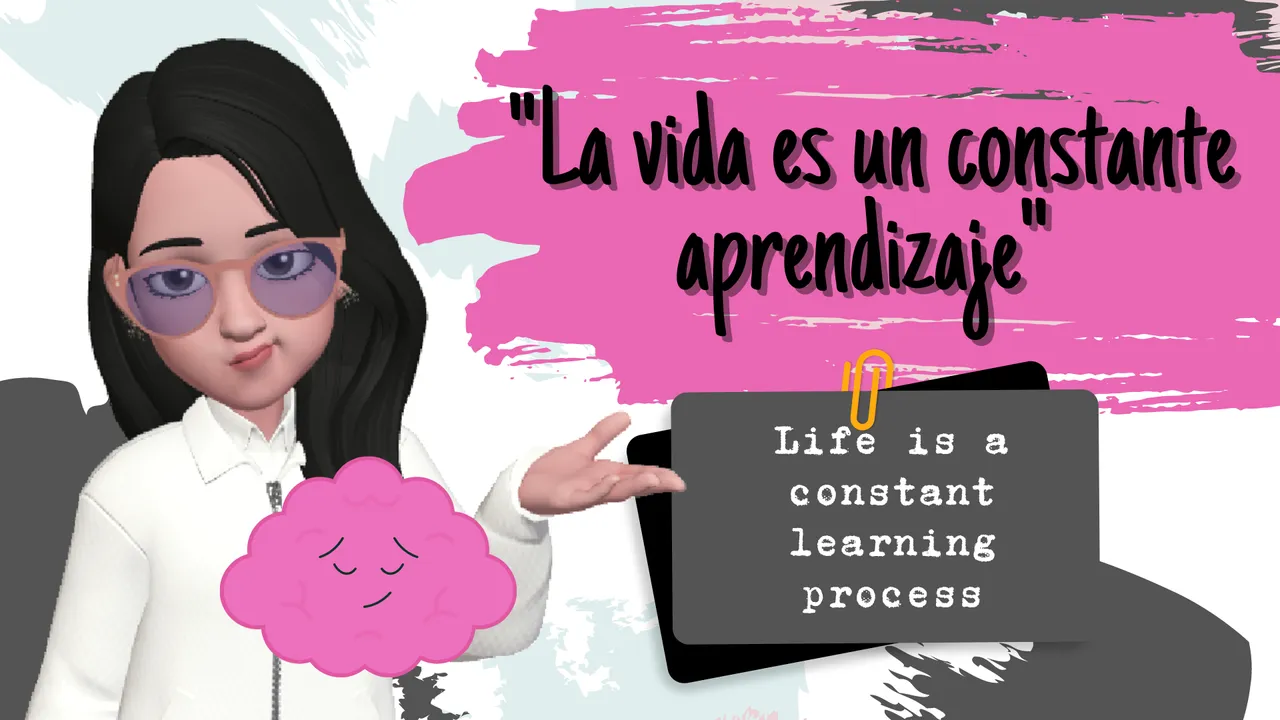

A lo largo de mi experiencia he creído que muchos de mis pacientes están transitando en esa etapa final del ciclo, tomando en cuenta sus edades, y después de que les aplico tratamiento viven muchos años más, por eso en ese momento no solo me dedico a atender al paciente, sino también me dedico a educar al familiar para que intente aceptar la incertidumbre de no saber lo que vendrá y mucho menos cuando ocurrirá ese final.
Puede que mejore, como puede que no, porque cada organismo es distinto y puede responder bien o no ante un tratamiento, lo importante es que se queden con la certeza de que se está haciendo lo humanamente posible, pero que recuerden que no podemos ayudar a otros sino nos sentimos bien nosotros y tampoco podemos hacerlo con la certeza de que va a mejorar al 100%, ni que el sufrimiento va a cesar del todo.
Por eso a partir de ese momento deben enfocarse en sí mismos y en su salud, porque repito, yo no puedo darles ninguna seguridad de cuánto tiempo le queda a esa persona a quien están cuidando, pero tampoco puedo permitir que se sigan deteriorando así mismo, debemos intentar encontrar un equilibrio, porque si no las consecuencias serán fatales, no solo para el paciente que trato, sino para el cuidador también, quien muy probablemente después se convierta en mi paciente también.
La conclusión de toda esta reflexión, es que no es fácil, no es fácil todo el proceso que se vive en ese transitar, ni para el paciente, ni para los familiares, ni siquiera para el médico, porque a fin de cuentas es un paciente que tengo en estado delicado y por el cual estoy preocupada, porque sí, yo no puedo pasarme un swiche y estando en casa olvidar a todas esas vidas que están a mi cargo, menos si están inestables, me voy con la preocupación yo también, hasta que todo termina, repito, bien sea, que todo mejore, o todo llegue a su final, así que no me queda más que entregarme yo también a la incertidumbre de no saber lo que pasará, solo me queda seguir haciendo mi trabajo y nada más.
Throughout my experience I have believed that many of my patients are going through that final stage of the cycle, taking into account their ages, and after I apply treatment they live many more years, that is why at that moment I not only dedicate myself to attend the patient, but I also dedicate myself to educate the family so that they try to accept the uncertainty of not knowing what will come and much less when that end will occur.
They may or may not get better, because each organism is different and may or may not respond well to a treatment, the important thing is that they are left with the certainty that they are doing what is humanly possible, but that they remember that we cannot help others if we do not feel well ourselves and neither can we do so with the certainty that they will improve 100%, nor that the suffering will cease completely.
That is why from that moment on they should focus on themselves and on their health, because I repeat, I cannot give them any certainty of how much time is left for the person they are taking care of, but I cannot allow them to continue deteriorating themselves, we must try to find a balance, because otherwise the consequences will be fatal, not only for the patient I am treating, but also for the caregiver, who will most probably become my patient as well.
The conclusion of all this reflection is that it is not easy, it is not easy the whole process that is lived in this transition, neither for the patient, nor for the relatives, not even for the doctor, because at the end of the day it is a patient that I have in a delicate state and for whom I am worried, because yes, I can not spend a swiche and being at home forget all those lives that are in my care, I am worried too, until everything ends, I repeat, either everything gets better or everything comes to an end, so I can only give myself up to the uncertainty of not knowing what will happen, I can only continue doing my job and nothing else.

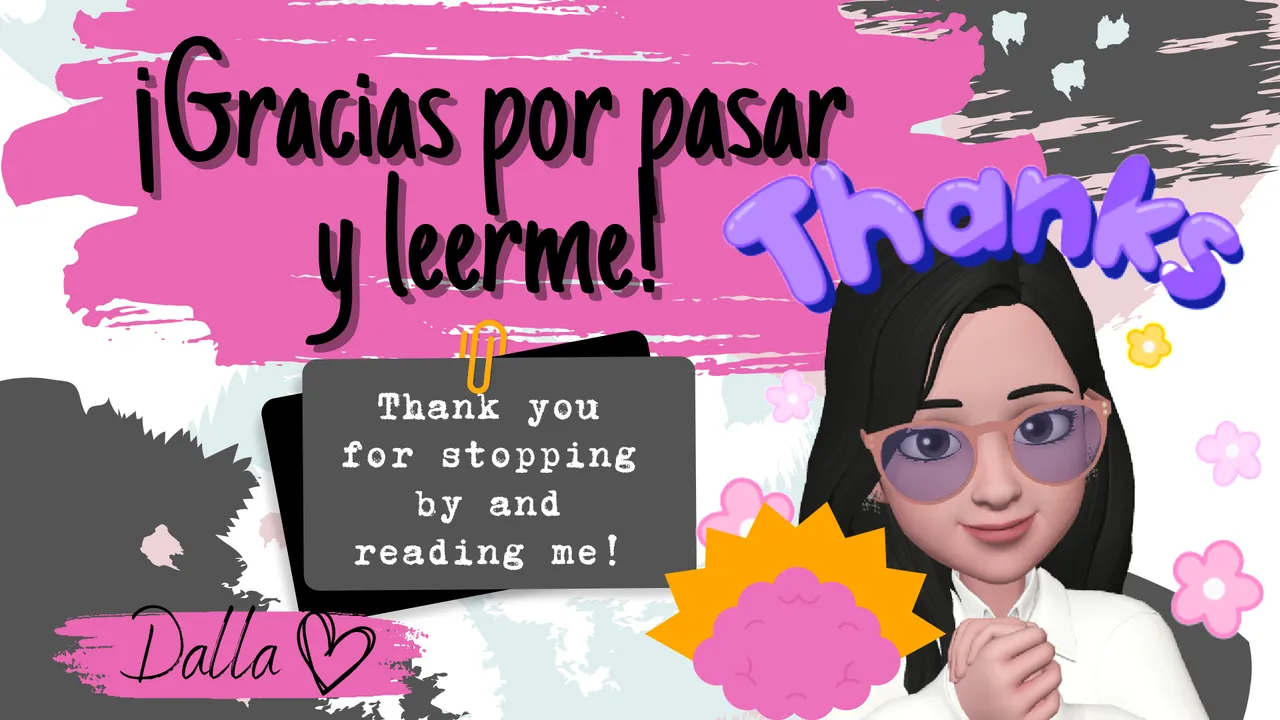

DeepL
|Twitter X|
